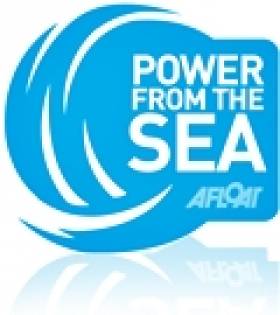Displaying items by tag: Taxes
New Taxes for Offshore Petroleum Exploration
#offshorepetroleum – The Minister for Communications, Energy and Natural Resources, Mr. Pat Rabbitte T.D. has today announced that the taxation provisions relating to petroleum exploration and production are to be revised upwards to provide for an increased financial return to the State from discoveries made under future exploration licences and licensing options.
Speaking this morning at the "Our Ocean Wealth Conference" in Dublin Castle, Minister Rabbitte, who also highlighted the exciting potential in offshore renewable energy, recalled that last year he had told the Oireachtas that he intended to seek independent expert advice on the "fitness-for-purpose" of Ireland's fiscal terms, such advice to focus on what level of fiscal gain is achievable for the State and its citizens and, equally important, on the mechanisms best suited to produce such a gain. International experts in the sector, Wood mackenzie, were subsequently engaged to provide that advice.
Minister Rabbitte announced that having received and considered Wood mackenzie's comprehensive and detailed report that he had sought agreement of the Government that Ireland's oil and gas fiscal terms should be revised along the lines recommended. He said that he concurred with the Wood mackenzie recommendation that there should be no retroactive change to the fiscal terms applying to existing exploration authorisations.
Commenting on the detail of the report Minister Rabbitte pointed to the key central conclusion which is that there is scope for strengthening the current fiscal system in terms of:
• providing for an increase in the overall State take;
• ensuring an earlier share of revenue for the State; and
• addressing what Wood mackenzie consider to be inconsistencies in the current fiscal system.
The principal recommendations made by Wood mackenzie are as follows:
• For now Ireland should maintain a concession system, with industry rather than the State bearing the risk associated with investing in exploration;
• Going forward a form of production profit tax should continue to apply in Ireland, but for discoveries made under future licences the form of this tax should be revised;
• The tax should be charged on a field-by-field basis with the rate varying according to the profitability of the field and charged on each field's net profits;
• That the revised tax should include a minimum payment at a rate of 5% which would function like a royalty and would result in the State receiving a share of revenue in every year that a field is selling production;
• That the revised tax rates should be higher than the Profit Resource Rent Tax currently in place, thereby ensuring a higher share for the State from the most profitable fields. This would result in a maximum rate of 55% applying in the case of new licences, compared with a maximum rate of 40% under the current fiscal regime; and
• That the corporation tax rate applying to petroleum production should remain at 25%.
These recommendations flow from a comparative analysis between Ireland and nine other comparable hydrocarbon producing nations such as Newfoundland and Labrador, New Zealand, Spain and South Africa amongst others, which can be found in the report.
Minister Rabbitte concluded that "By acting now and setting out Government policy on this issue, it is my intention to communicate a clear message in relation to the stability of Ireland's fiscal regime for the oil and gas exploration sector. For existing licences no changes are proposed. For future prospective licence holders a clear regime is being set out and the rationale for that regime has been explained. This should further engender industry confidence in the stability and predictability of Ireland's oil and gas fiscal terms and allow the industry to focus on effective and timely exploration effort. "
























































